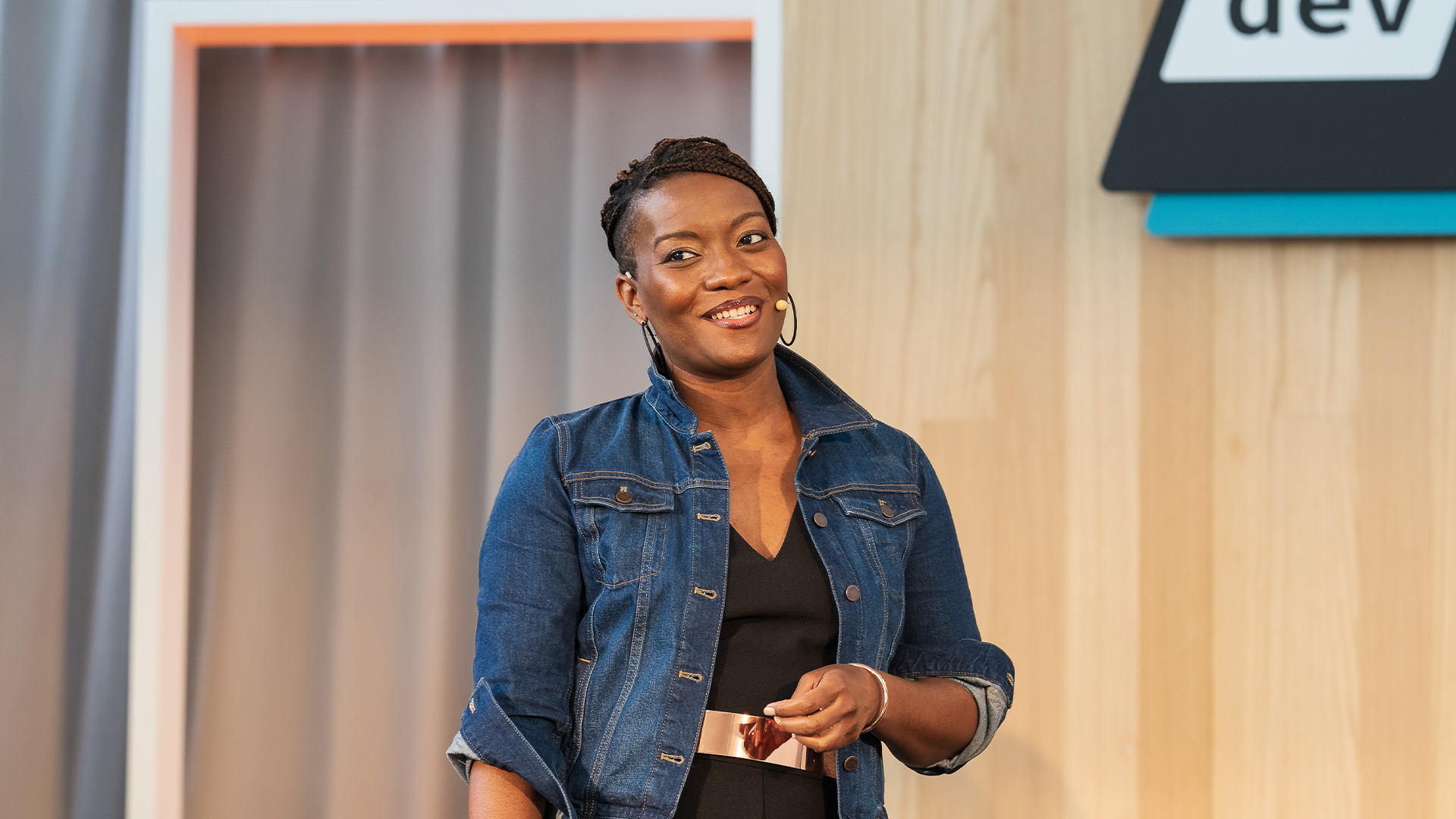As CEO of /Dev/Color, Rhonda Allen’s sole goal is to advance Black technologists.
“I felt this acutely in the midst of the 2020 racial reckoning and joined /dev/color to work explicitly and boldly for the advancement of Black technologists, their teams, and the great work they’re doing to shape the future of tech and our world,” she told AFROTECH. “Together, we have the power to change tech for good, and we’re pursuing that goal with and for Black software engineers, technologists, founders, and executives.”
The efforts of the accelerator have not been in vain. Since its inception in 2015 by Black software engineers, its community has grown from a “small squad” to over 700 professional members, and the nonprofit has also established a global community through its activations. Additionally, nearly 1,000 leaders have participated in its flagship peer mentorship program.
“A large part of our success can be seen in the growth of our community and the success of our members…,” Allen shared. “By design, /dev/color brings Black technologists together to surface and solve some of our most pressing challenges, and we see that echoed in testimonials we hear from our members every day.”
View this post on Instagram
The work is being done alone. To go far requires partnerships. /Dev/Color has worked with individuals and organizations who share its vision of equity.
“We have mission partners — these are tech companies or tech-adjacent companies who support our membership network, and who we, in turn, work with to advance our common cause of equity,” Allen explained. “Second, we are committed to building strong ties across the Black tech ecosytem and collaborate with organizations like Black Product Managers, Colorwave, ColorStack, and Goodie Nation to serve technologists, entrepreneurs, and executives across the industry.”
She added, “Finally, we work with individual champions who invest in niche programs and mentoring experiences to share their expertise and network for the advancement of our community.”
There are some challenges being faced by the organization as its leaders are greatly aware of the eminent attack on venture capital funding. As AFROTECH previously mentioned, Fearless Fund has been temporally ordered by a panel on the U.S. Court of Appeals for the 11th Circuit to halt funding after the firm was sued by Edward Blum and his American Alliance for Equal Rights group. The group accused Fearless Fund of operating with “explicit racial exclusion” by creating a grant program dedicated solely to Black women, per The Washington Post.
Many are paying close attention to the case as it will very likely have great ramifications for BIPOC founders. Despite facing “tough times,” Allen says it’s imperative to remain united and maintain the organization’s commitment to improve the tech industry.
“Top of mind and close to home are the latest waves of the anti-woke agenda and attacks on diversity, equity, and inclusion efforts,” she expressed. “Between the interpretation and lawsuits following the recent SCOTUS affirmative action opinions and the cross-sector layoffs and impacts on DEIB work & teams, to say we’re facing ‘tough times’ would be an understatement. And yet, we press forward. We know the positive impacts of this work in all aspects of business outcomes, and it’s not the time to back down or take easy off-ramps. Together, we must stay the course and double down on our commitments to change tech for good.”
/Dev/Color’s efforts over the year include offering various resources including hands-on workshops, peer network and support, personalized coaching, pitch competitions with cash prizes, and a three-month entrepreneur accelerator program, per the organization’s website.
“There is power in collective support and accountability, and /dev/color aims to be a partner to industry leading companies in the work of actualizing their commitments to diversity, equity, inclusion, and belonging,” Allen said. “In the midst of outright attacks on the work, we are fighting to ensure our members have internal and external support, advocacy for their priorities, and an inclusive community experience alongside the opportunities, challenges, and choice points in their day-to-day work.”

